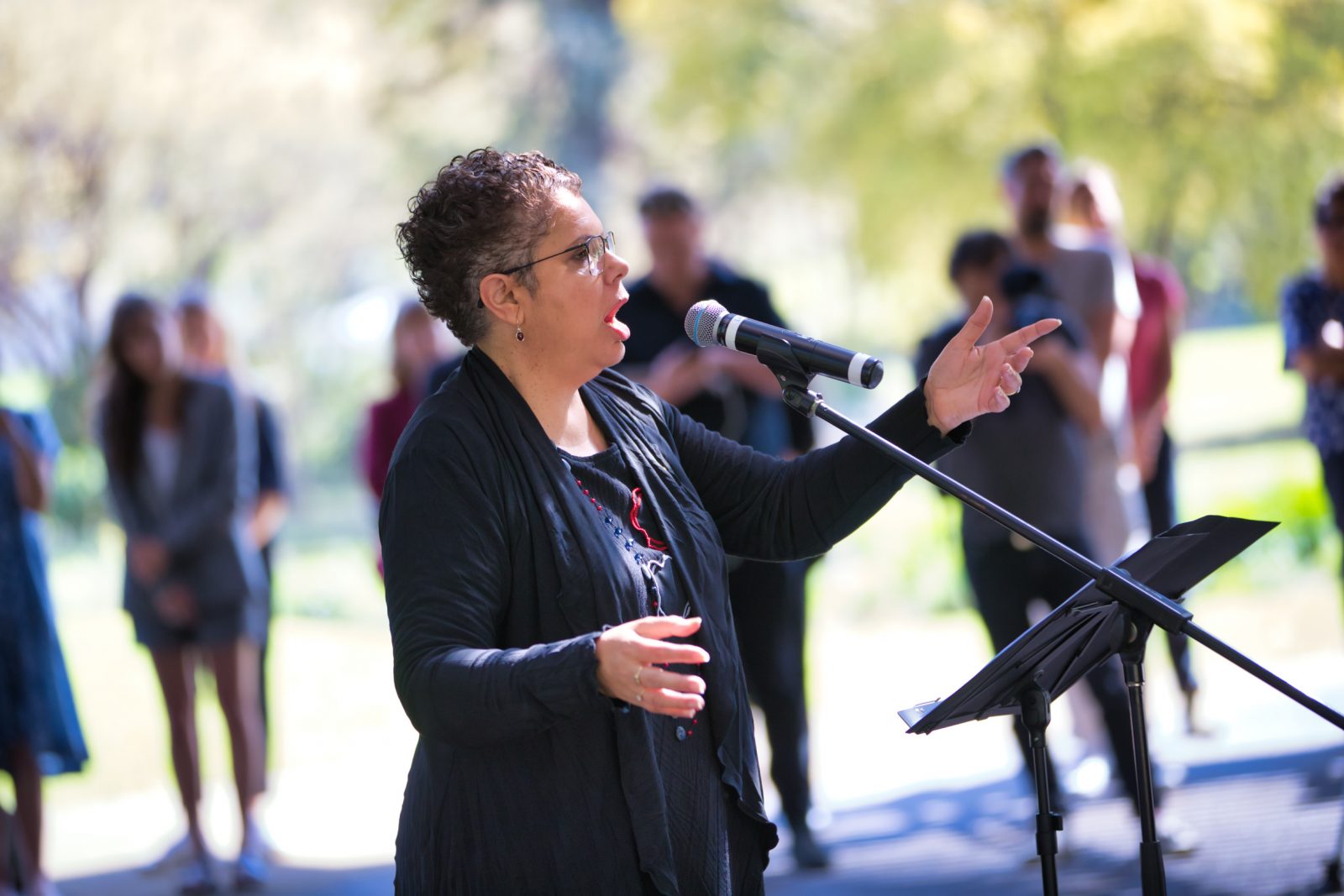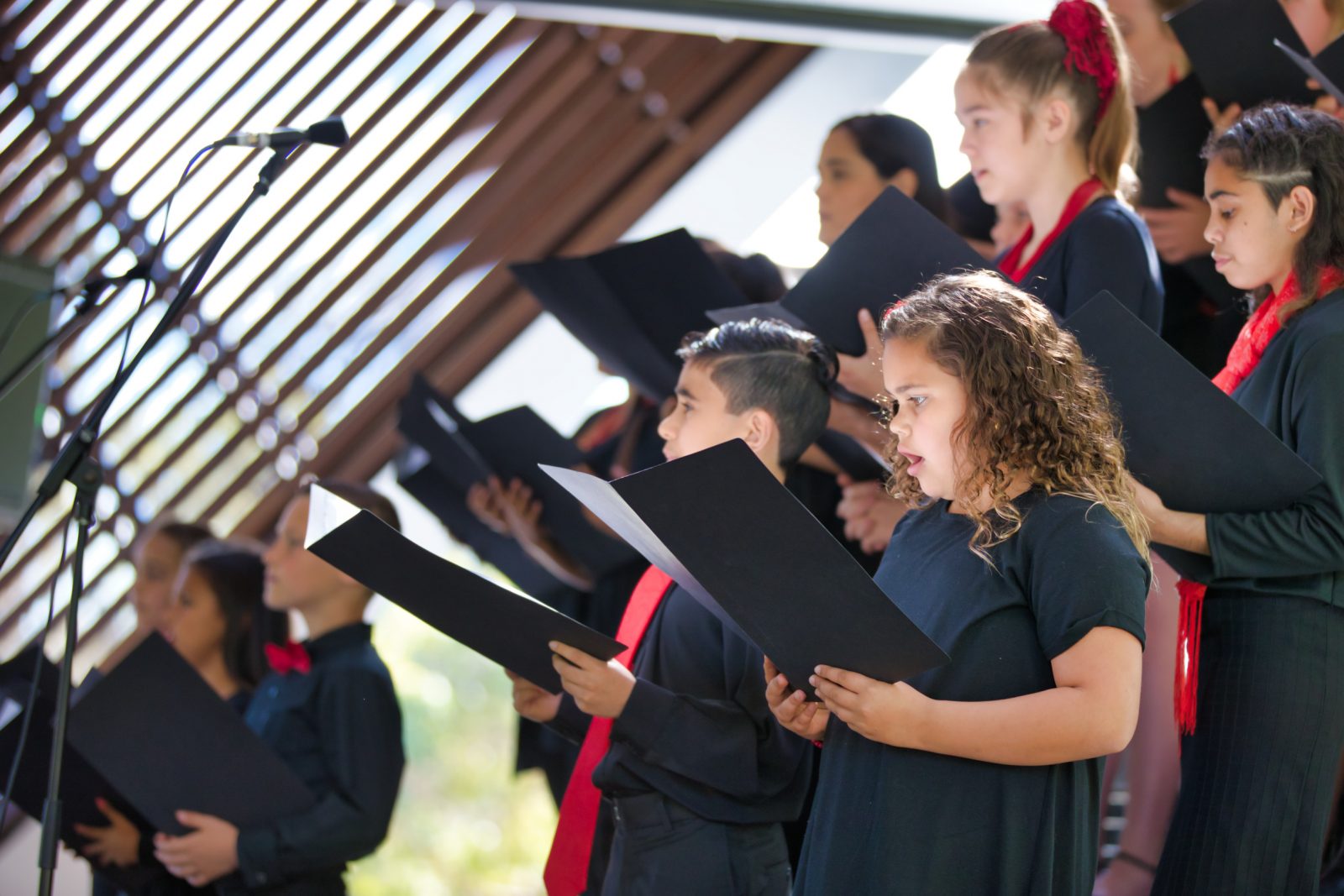Q&A: Deborah Cheetham on Composing for MPavilion 2019

As one of Australia’s most revered and sought after sopranos and composers, Deborah Cheetham AO is constantly creating and collaborating. A Yorta Yorta woman with deep ties to community, education and the international arts landscape, Deborah has been recognised on the Honour Roll of Women in Victoria, with an Honorary Doctorate from the University of South Australia, and as an Officer of the Order of Australia.
Since our very first opening event back in 2014—celebrating the unveiling of Sean Godsell’s MPavilion—the Naomi Milgrom Foundation has commissioned Deborah to compose a special Acknowledgement of Country song, with each year’s song forming part of a longer ongoing composition. For the opening of MPavilion 2019 by Glenn Murcutt AO, Deborah has once again written a song in the language of the Boon Wurrung, on whose lands and waters we gather.
We had a chat to Deborah about her song commissions for MPavilion, and about her writing process.
MPavilion: Your Acknowledgement of Country song series has been vital to MPavilion since our inaugural year, in 2014. What has your relationship been to the series? Year to year, has your approach to the song changed?
Deborah Cheetham AO: The MPavilion Acknowledgement of Country series has been of immense value to my process as a composer. Each year the task of creating a response to the architect’s vision requires time and thought as I comprehend the way each pavilion interacts with the space and how it reflects past, present and future engagement with the land of the Yallukit Willam.
MPavilion: How do you feel about the series now as an expanding body of work?
Deborah: The Acknowledgement series is a truly unique project. It was ahead of its time when we began in 2014 in many ways, while at the same time celebrating a link to the oldest practices of ceremony. It has been an honour to have this long connection to such a visionary project as MPavilion. The songs play an important role in my experience as a composer working almost exclusively with traditional languages and texts.

Dhungala Children’s Choir at MPavilion 2018. Photo by Timothy Burgess.
MPavilion: You are a Yorta Yorta woman, but MPavilion is built on Boon Wurrung Country and as such the Acknowledgement is sung in Boon Wurrung language. You have also composed in various languages, including for the Dhungala Children’s Choir, which performs each year at MPavilion. How does language shape your composition?
Deborah: Language is shaped by the land from which it originates. The unique geography of each Indigenous nation across our vast continent serves to define the rhythm and texture of each traditional language and in turn this informs the composition.
MPavilion: In 2014 you were inducted into the Honour Roll of Women in Victoria, which celebrates outstanding women leaders. What is important to you—creatively and personally—at this stage of your career?
Deborah: Truth. Knowledge. Understanding. Respect. Without these all else is meaningless.
Join us for the Opening Night of MPavilion 2019 by Glenn Murcutt featuring an Acknowledgement of Country song by Deborah Cheetham AO on Thursday 14 November from 6.30pm. You can also see Deborah leading the Dhungala Children’s Choir performing Coral Song Connection Book at MPavilion on Saturday 16 November, 2–4pm.
MPavilion 2019 opens in the Queen Victoria Gardens on 14 November 2019 – 22 March 2020. MPavilion is an initiative of the Naomi Milgrom Foundation in partnership with City of Melbourne, Victorian Government through Creative Victoria and Development Victoria, ANZ, and RACV.